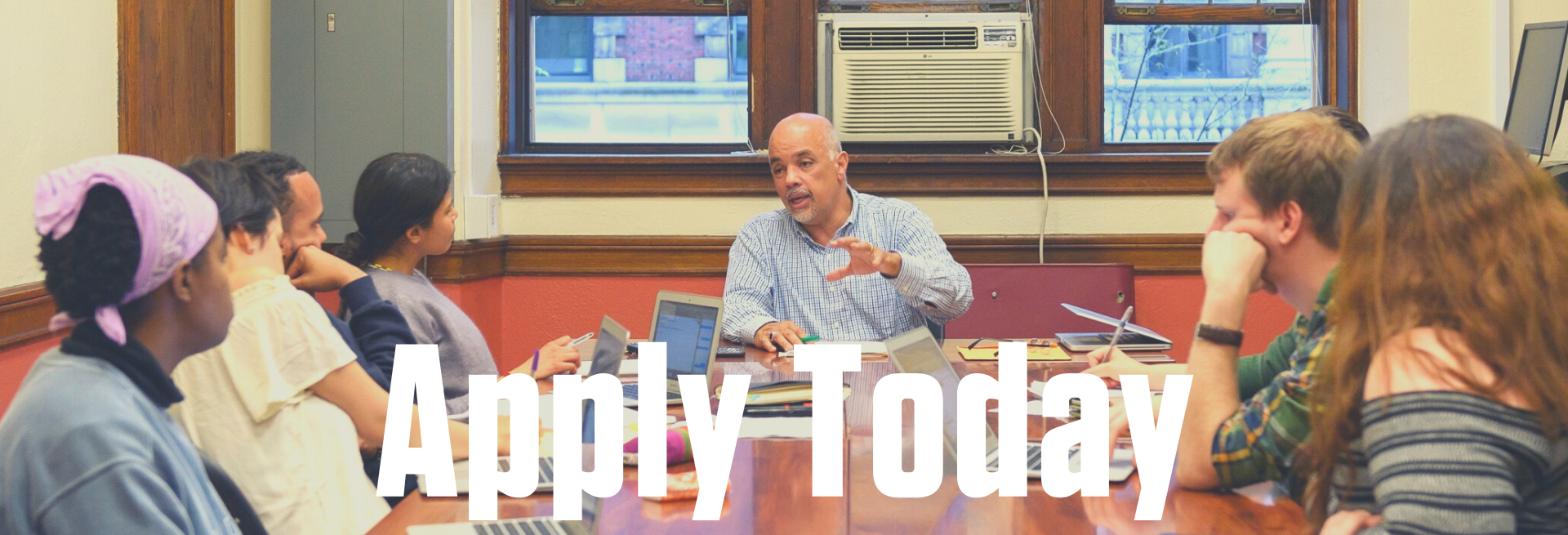Current Students: Looking for your degree requirements? Visit the Academic Resources on the Registrar Page.

The Master of Divinity (MDiv) is a professional graduate degree program tailored for those looking to become ordained or serve in various ministerial vocations. We offer both a standard three-year, 78-credit full-time program and a flexible part-time option to accommodate the diverse needs and schedules of our students.
Students come to Union with a multitude of backgrounds, interests, and aspirations. Recognizing this diversity, Union has thoughtfully designed a flexible MDiv curriculum to provide students with diverse ways to fulfill degree requirements.
The Master of Divinity program offers full-time and part-time options for both residential and commuter students, all set within a justice-minded, dynamic, and diverse community. At Union, our seminarians evolve into agents of change, bringing a grounded, critical, and compassionate presence to the major personal, social, political, and scientific realities of our era. Our challenging curriculum harmonizes ancient wisdom with contemporary anti-racist, feminist, LGBTQ+, and postcolonial social theory, all within an interfaith and interreligious context.
Review the Application Procedures and Deadlines before you apply.
Possible concentrations:
Anglican Studies | Bible: New Testament | Bible: Old Testament | Bible: Cross-Testament | Buddhism & Interreligious Engagement | Buddhism & Interreligious Engagement/Chaplaincy | Chaplaincy | Church History/Historical Studies | Interreligious Engagement | Islam & Interreligious Engagement | Islam & Interreligious Engagement/Chaplaincy | Ministry & Social Work | Pastoral Ministry & Theology | Psychology & Religion | Religion & Black Experience | Religion & Society | Social Ethics | Theological Studies | Worship, Preaching, and the Arts | Interdisciplinary Study
Sample Classes
This course introduces the field of interreligious engagement through readings, site visits, spiritual practices, and self-reflection. It aims to cultivate understanding of the phenomenon of religious diversity, central questions and concerns that arise in relation to religious diversity, and prominent approaches to interreligious engagement.
This course explores tenets, movements, leading figures and issues central to what has come to be known as
socially engaged Buddhism. In addition to exploring how these movements initially responded to the colonial and
wartime contexts from which they emerged, students examine the critiques that engaged Buddhism offers current social and economic realities, as well as Buddhism’s own institutions and practices.
The course traces women’s participation and leadership in the black freedom movement from the nation’s
founding until today, including women’s resistance to enslavement, petitioning for reparations, organizing against lynching, and developing legal frameworks for equal rights.
An introduction to systematic theology, this course studies Christian theologies of the 20th and 21st centuries, including black, feminist, liberation, queer, and womanist theologies. Course readings address contemporary debates on theological problems such as the authority of revelation and scripture, radical divine transcendence, care of creation, the person and work of Jesus Christ, the violence of the cross, what it means to be human, hope in the face of evil and suffering, to name a few.
This course introduces a range of diverse populations by race, ethnicity, gender, sexual orientation, religion, and physical differences. Additionally, students examine the role, function, and effects of oppression in society as it relates to social and economic justice. Assumptions underlying theory and research methodologies from which basic constructs of human behavior are drawn are examined to understand how power and other dynamics manage and sustain oppression at the individual and institutional levels. Also of interest is how oppression affects ecclesiastical, local parish, mosque, temple, and faith-based organizations at micro and macro levels, particularly policies and strategic planning, which drive the shape of places of worship.
Field Education
Union is a place for those who understand ministry in the broadest of terms. Recognizing the many different ways individuals can bring their call to social justice to life, we accommodate a wide variety of paths for students to fulfill their field education requirement.
While many students choose traditional sites, like serving in churches, hospitals, and hospice programs, Union students have also worked on Rikers Island teaching horticulture to the incarcerated, and one even took an entire year to bike around the world in support of the Millennium Development Goals.
Whatever a student’s path, Union’s field education program transfigures mere “work in the field” into an integrative education that brings together knowledge, skill, moral integrity, religious tradition, and religious commitment. These elements combine to create an engaged ministerial practice that gives students a foundation for success in pursuing their call, whatever they may discover it to be.
Hear From Our Students
There are over 100 field sites open to Union’s MDiv students to select from. These sites provide a meaningful experience aligned with the varied interests and goals of the prospective student. Read our recent Field Education student profiles to learn more about the program.
Field Education Profiles
